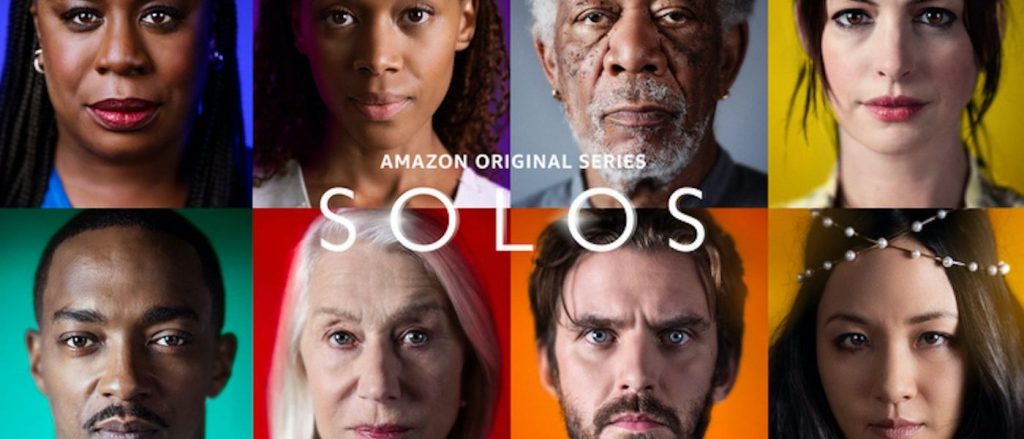Solos Review 2021 Tv Show Series Cast Crew Online
Creator: David Weil
Stars: Uzo Aduba, Nicole Beharie, Morgan Freeman
Necessity is the mother of invention, but not necessarily of good TV. The programming that came out of the early COVID production restrictions — Social Distance, Love in the Time of Corona, those together-apart reunions of 30 Rock and Parks and Recreation — are in retrospect some of the least essential shows of 2020. And yet a new frontrunner emerges in that race for dispensability: Amazon’s Solos, a monologue-driven, single-set, vaguely sci-fi anthology drama that might inspire even the most earnest acting student to roll their eyes at its lazy self-indulgence and overwrought intensity.
Shot last fall, the seven-part series somewhat recalls Black Mirror in its near-future setting and occasional flirtations with techno-dystopian scenarios, but utterly lacks that series’ commitment to its ideas or visual flair. (In their place, Solos offers…lots and lots of fart jokes.) Though full of admirable performances by the likes of Helen Mirren, Morgan Freeman, Anne Hathaway, Anthony Mackie, Uzo Aduba and Constance Wu, there’s little tonal or thematic connective tissue from one episode to the next. The point of creator David Weil’s show, I think, is to demonstrate how transporting an actor’s words can be, but the wan writing and dispiriting plot twists mostly just underscore how long 30 minutes can feel.
Mirren acquits herself best as Peg, a willing human guinea pig on a spaceship with no plan for returning to Earth. Hurtling away from everything she’s ever known — and strangely incurious about the purpose of the experiment she’s just signed up for — the septuagenarian chats with the shuttle’s computer system as if she’s having tea with a dear friend. Her journey is familiar — that of an older woman who realizes she didn’t need to be so self-effacing all her life, and vows to be more assertive now — but Mirren’s understated, phenomenally controlled, bittersweet performance distinguishes it from other Pegs you’ve seen before.
No other actor transcends the humdrum scripts, although Aduba and Wu come close. Aduba’s episode is the only one that reaches for some kind of social resonance, and the actor benefits from that with her paranoid turn as Sasha, a recluse who’s been fooled one too many times by the tech powers that be to now believe their insistence that the pandemic she’s been hiding out from has been over for years.
Wu’s installment opens with her character, Jenny, in an otherworldly waiting room. Possibly hungover with her eye makeup smeared, Jenny recounts the slowly unfurling nervous breakdown she’s been having for the past year or so, which has ebbed and flowed with her shifting ambivalence toward motherhood. Jenny’s story is by far the most emotionally extreme, and Wu excels in this rare dramatic role. But even her talents can’t rescue her from a car wreck of a final reveal that retroactively ruins the previous half-hour.
Saddled with less memorable roles are Hathaway (who plays three different versions of her grieving time-travel inventor — yeah, you read that right), Mackie (who also plays opposite himself), Nicole Beharie (whose Nera has to contend with a kind of unnatural motherhood she wasn’t prepared for in the season’s weakest installment), and Freeman and Dan Stevens (the only two actors freed from the soliloquy format). The latter’s concluding chapter — between an Alzheimer’s patient (Freeman) and the interloper (Stevens) who restores the old man’s memories, but for his own gain — perfectly encapsulates how, no matter the novelty of the show’s premises, it’s constantly underdone by perfunctory characterizations and a lack of point of view. Perhaps Solos isn’t wholly inessential, though: It certainly makes the running-on-fumes later seasons of Black Mirror look a lot better in comparison.




